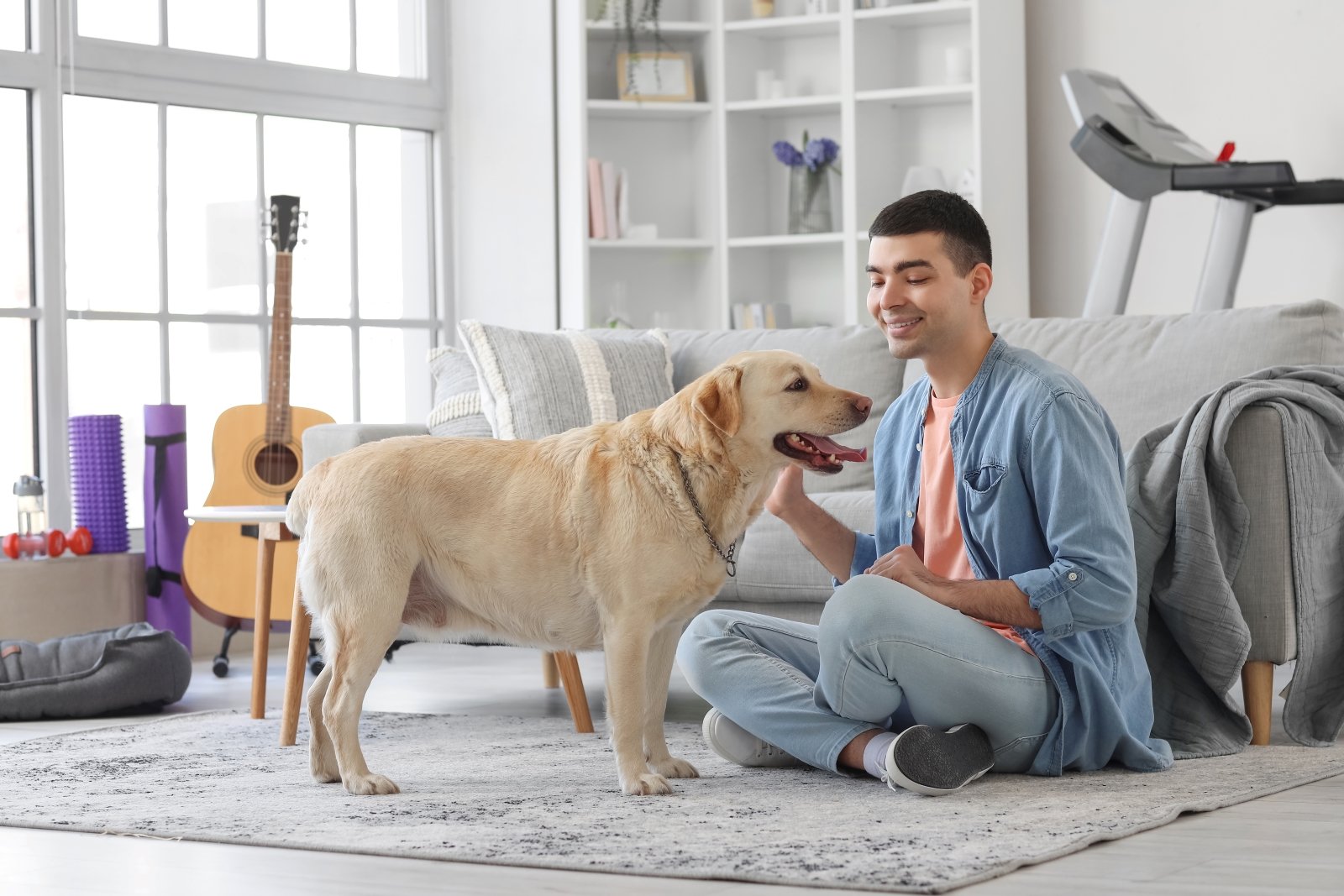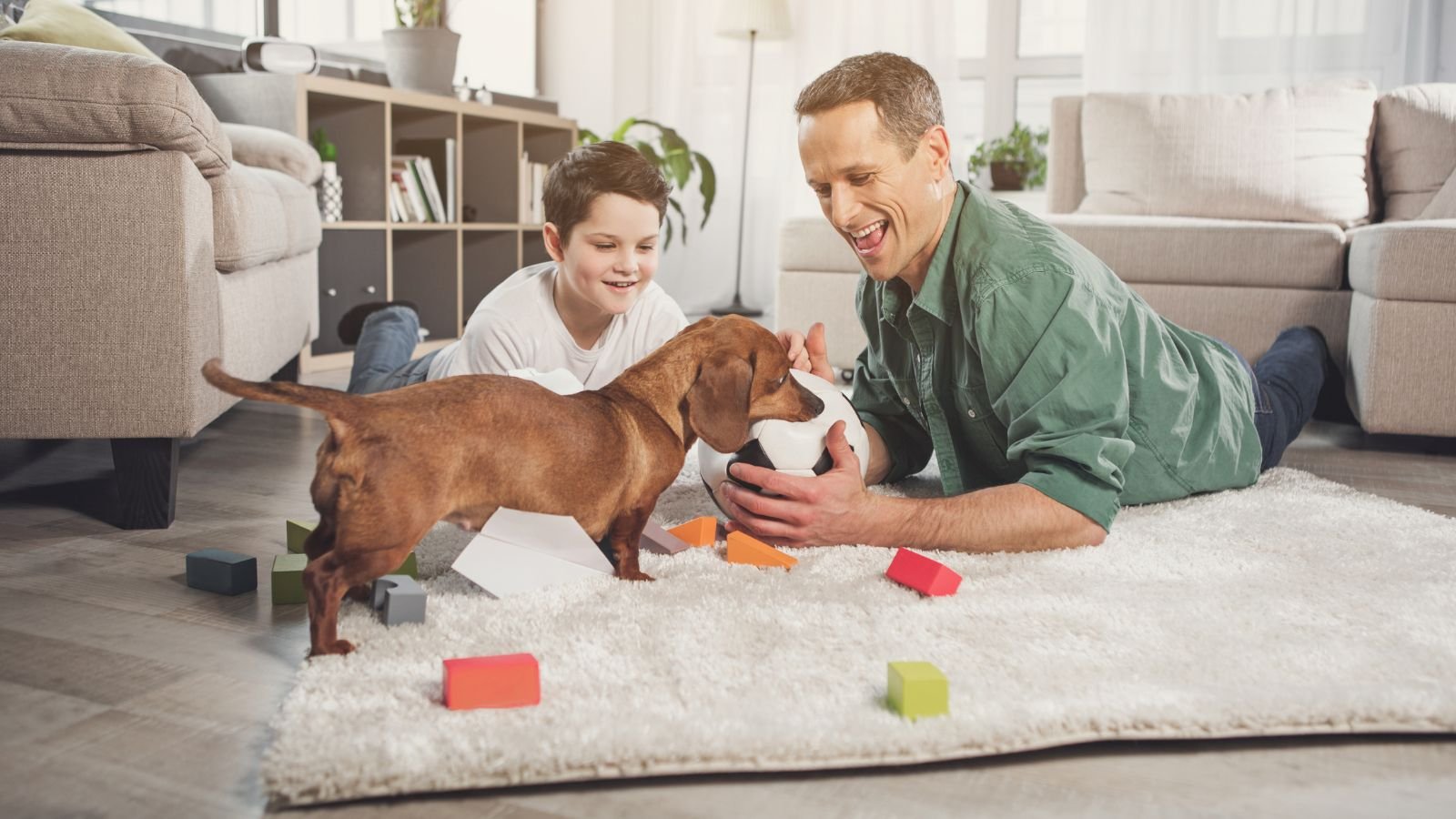Dogs are replacing children for several Americans. A USA TODAY Blueprint-One Poll survey found that nearly 40% of dog owners chose to be pet parents instead of having babies. The trend is more prominent among people in the age bracket 18-26 (67%) than among those in 27-42 (43%) and 43-58 (28%).
While dogs and babies are not the same, these people have good reasons to own a dog than raising a kid.
Simpler Care

According to the same survey, 81% of dog owners agree that caring for a dog instead of a child is more straightforward. Tiny humans need round-the-clock attention, while furry babies can manage independently at home. All dogs need is a few hours of caretaker’s time to be fed, walked, or played with.
No Elaborate Planning

54% of people from this survey believe getting a dog requires less planning than babymaking. When one decides to get a canine companion, they can visit a pet store or animal shelter.
However, one must be physically, emotionally, and financially prepared before welcoming a little one into this world. Conceiving can take months or years.
Affordability

This survey also revealed that 74% of people find dogs more affordable than children. Hence, they choose not to have or delay having children in favor of dogs.
A survey by a home security and safety information site clarifies the cost estimate. It says the first-year cost of adopting a dog is $1,082, compared to $2000-3739 for having a baby, excluding adoption fees and medical expenses.
Less Long-Term Financial Commitment

The American think tank Brookings Institution statistics finds that a middle-income, two-parent married family with two children will have to spend $310 605 to raise one child born in 2015 till s/he reaches 17 years of age in 2032. A personal finance site report states that American families spend around one-fifth of their income on child care.
Some parents incur expenses even after their children reach young adulthood. For instance, Pew Research Center findings suggest that 59% of parents financially helped their young adult children (18-34 years) in 2023.
Dog parenting comes with lesser financial responsibility. The average life span of dogs is 10-15 years, and expenses are fewer. As per the 2021-2022 APPA National Pet Owners Survey, a few categories with basic annual expenses for dogs are surgical vet visits ($458), routine vet visits ($242), food ($287), and miscellaneous expenses ($90.5).
Flexibility

Millennials and Gen Z prioritize personal freedom over a traditional, family-bound, career-oriented lifestyle. A Fortune-Harris Poll survey highlights that 65% of nonparents believe that being childfree brings them happiness, and young Americans capitalize on freedom associated with not having kids.
Owning a dog gives dog owners more freedom than parenthood. Dog owners can easily arrange pet care when they go to work and travel with or without pets. On the contrary, parents often compromise their personal and professional commitments, sleep, and other lifestyle choices to look after kids.
Stress Busting

Research has found that pet dogs can help owners reduce anxiety and increase happiness. Spending time with a dog has therapeutic effects, perhaps a reason why it is called a man’s best friend.
While parenting stress is normative, raising a child is no mean feat. While 41% of parents say that parenting is enjoyable and rewarding, it is also tiring and stressful. There is also societal pressure to be a perfect parent and put children’s upbringing above personal well-being.
No Relationship Complexity

Human relationships are complex, and it is natural for people to have conflicts and differences with each other. As children grow up, they begin to exhibit emotional and behavioral changes, which can adversely affect their relationship with their parents. Gallup’s 2023 Familial and Adolescent Health Survey shows that 80% of parents rate their relationship with toddlers as excellent compared with only 48% of parents when asked about their teenagers.
Dogs are selfless beings. They crave love and affection from their owners but don’t cause any relationship complications.
Unconditional Companionship

Dogs are one of the most loyal animals. They will stay by their owner’s side and not outgrow their companionship.
Children tend to spend less time with their parents as studies, friends, and other activities dominate their lives. They usually move out of their parent’s home at 18. Dog parenting doesn’t cause the emptiness that arises from children not being around.
Social Connections

Humans, being social animals, constantly look to connect with other people. Pets can be instrumental in helping their owners do this. According to a study, 83% of adults have interacted with people they otherwise wouldn’t because of their pets. Nine out of ten adults find pets useful as conversation starters or icebreakers and contribute to a stronger sense of community.
Parenting responsibilities, especially in the early years, can make it challenging to take time out for socializing. New parents can experience postpartum depression and loneliness, which otherwise is not the case with pet parenting.
Relief from Parental Anxiety

Mental health ranks number one on the list of parental concerns as they worry about children falling into depression or anxiety. Parents often fear about their children getting bullied, kidnapped, attacked, beaten up, or shot. They dread that their child may get pregnant or get someone else pregnant as a teen. They have to monitor children to ensure that they are not doing drugs, consuming alcohol, or getting into trouble with the police.
There are no such concerns with owning a dog.
